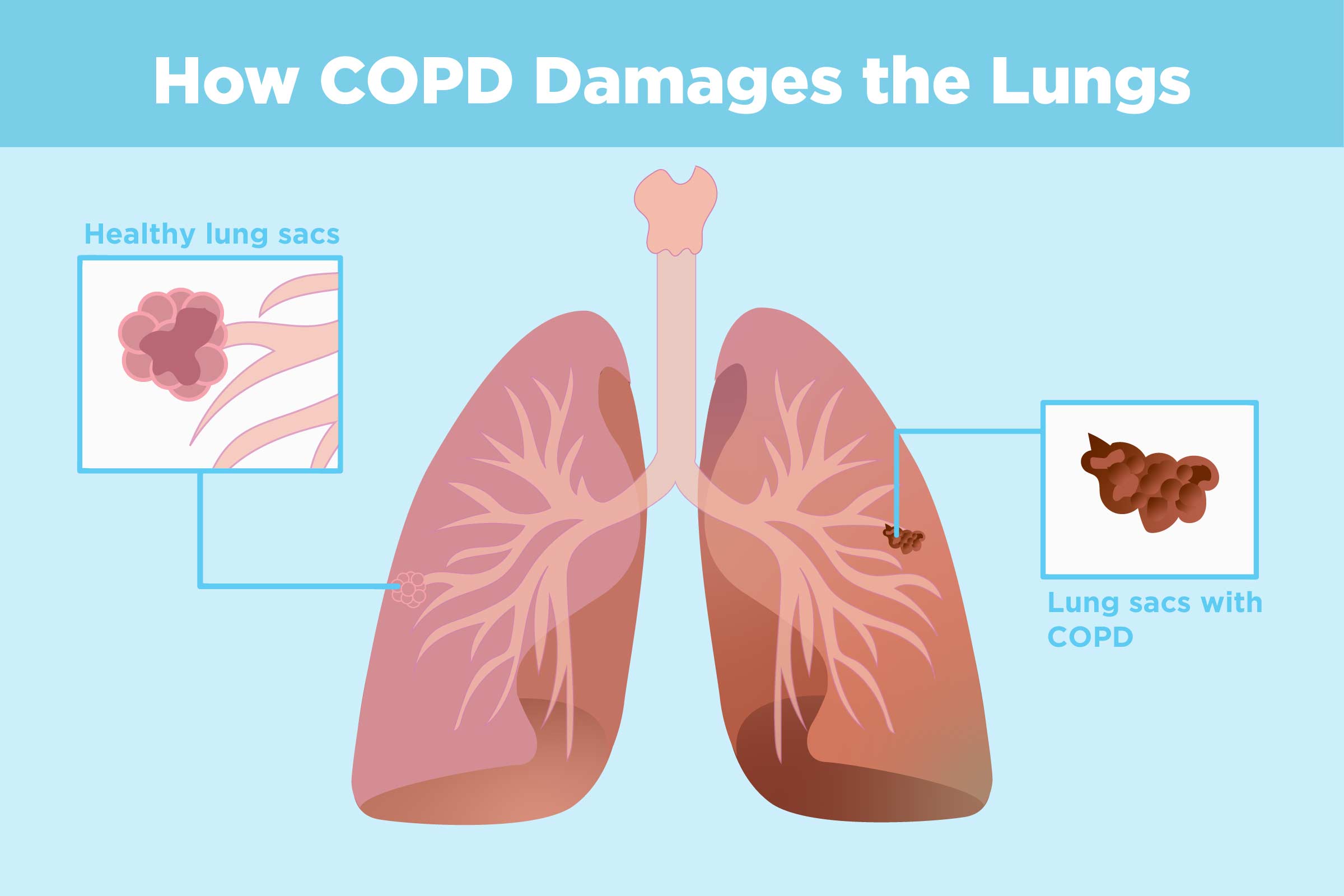Chronic obstructive pulmonary disease (COPD) is one of the most common lung diseases. It makes it difficult to breathe. There are two main forms of COPD:


Chronic obstructive pulmonary disease (COPD) is one of the most common lung diseases. It makes it difficult to breathe. There are two main forms of COPD:


Anemia is a condition in which the body does not have enough healthy red blood cells. Red blood cells provide oxygen to body tissues. Possible causes of anemia include:
Inflammatory Bowel Diseases (IBD) is a broad term that describes conditions with chronic or recurring immune response and inflammation of the gastrointestinal tract. The two most common inflammatory bowel diseases are ulcerative colitis and Crohn’s disease. Both illnesses have one strong feature in common. They are marked by an abnormal response by the body’s immune system. Normally, the immune cells protect the body from infection. In people with IBD, however, the immune system mistakes food, bacteria, and other materials in the intestine for foreign substances and it attacks the cells of the intestines. In the process, the body sends white blood cells into the lining of the intestines where they produce chronic inflammation. When this happens, the patient experiences the symptoms of IBD.
Irritable bowel syndrome (IBS), a disorder that affects the motility (muscle contractions) of the colon. Sometimes called “spastic colon” or “nervous colitis,” IBS is not characterized by intestinal inflammation and bears no direct relationship to either ulcerative colitis or Crohn’s disease. Sufferers of IBS, however, may experience the same or similar symptoms and limitations.
Symptoms include persistent diarrhea (loose, watery, or frequent bowel movements), cramping abdominal pain, fever, fatigue, loss of appetite, weight loss and, at times, rectal bleeding.
It is important that you let your doctors know about each of your symptoms and how you are limited by your illness. Social Security will consider the objective evidence that documents your illness as well as the subjective symptoms (such as pain and fatigue) It is also helpful to keep a log of your symptoms, how often you experience symptoms, how long such symptoms last and the intensity of your symptoms. Social Security will consider how often a claimant with IBD would miss work or be away from work because of the need to use the bathroom. Statements from former employers may be helpful to establish disability as well. As with other chronic illnesses, one’s mental health can be affected: Treatment for depression or other associated mental/emotional conditions is recommended.
To read more about inflammatory bowel diseases, see:
Back pain is a common impairment that often interferes with one’s ability to work and may be the basis for disability. The severity and limiting effects of back pain, however, is often difficult to prove. In general, it is more difficult to be approved for disability based on back pain at a younger age. Back pain may be caused by any number of conditions as noted below or by unknown causes.When evaluating back pain, the Social Security Administration looks for objective signs and symptoms.It is important, if possible, to have reports of tests such as MRIs, discograms or at least x-rays as well as reports of examinations by specialists.Social Security looks for the following in a doctor’s examination report:
Anxiety is an emotion characterized by feelings of tension, worried thoughts and physical changes like increased blood pressure. People with anxiety disorders usually have recurring intrusive thoughts or concerns. They may avoid certain situations out of worry. They may also have physical symptoms such as sweating, trembling, dizziness, or a rapid heartbeat. The Social Security Administration will consider post traumatic stress disorder (“PTSD”), obsessive compulsive disorder (“OCD”), and panic disorder under the heading of anxiety disorder.
Although it is often difficult for those suffering from severe anxiety disorders to seek treatment or remain in treatment, support from a treating source is the best way to ensure your claim is approved.
For more information about anxiety and anxiety related disorders, see:
http://www.nimh.nih.gov/health/topics/anxiety-disorders/index.shtml
Depression may be the basis of disability, by itself or in combination with other psychiatric or physical impairments.